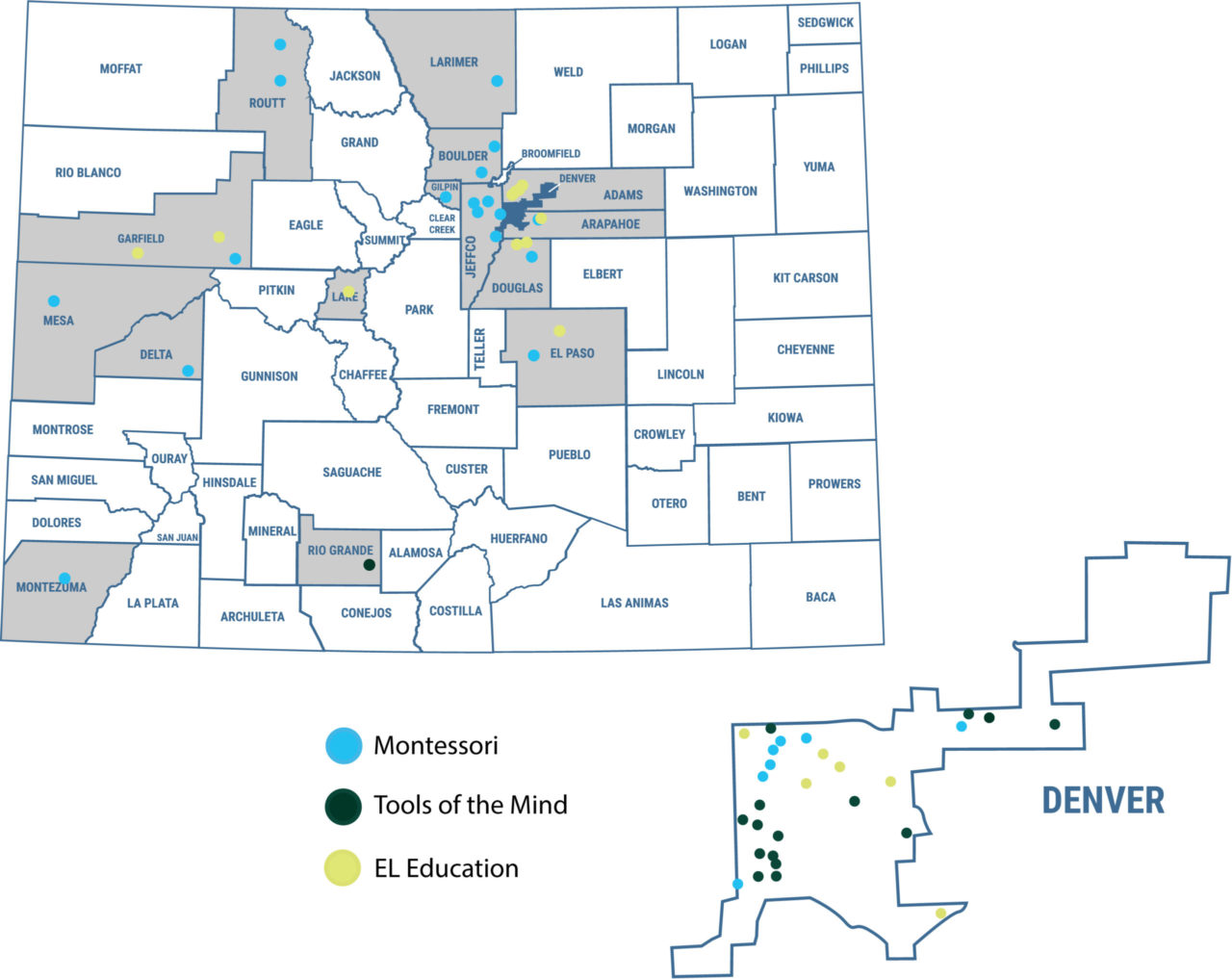Children learn best when their unique interests and abilities are honored. Ideal Learning is a whole-child approach that places children at the center of their education. Since 2019, Early Milestones has worked in partnership with Trust for Learning to expand Ideal Learning environments across Colorado. Over the course of four phases of work, Early Milestones researched challenges and opportunities to advance Ideal Learning approaches in early care and learning, evaluated alignment between the Principles of Ideal Learning and state-supported guidance, mapped existing programs in Colorado, and produced a brief to make the case for expanded use of these models.
Investing in Colorado’s Early Education Ecosystem: A 5-Year Campaign for Ideal Learning recounts the history and context of the partnership, impact to date, and important insights gained along the way. We hope that administrators, policymakers, and funders can draw upon it to advance ideal learning policies and environments in Colorado and other states.


